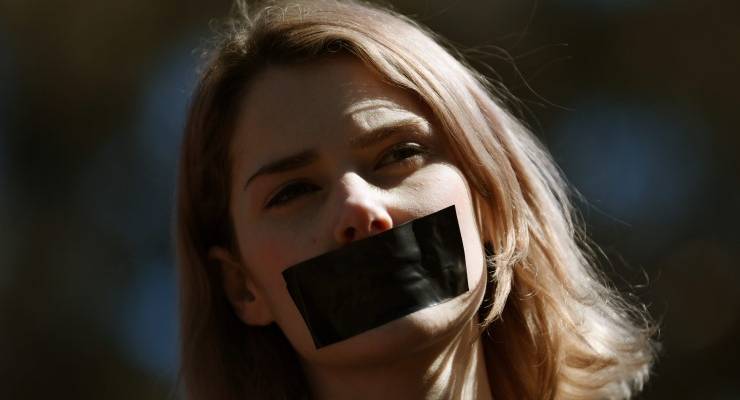
Note: this story contains references to sexual assault.
Yesterday, reports emerged that Defence Minister Linda Reynolds had called former staffer Brittany Higgins, who claims she was raped in Reynold’s office in 2019, a “lying cow” once the allegations became public.
That comment, coupled with ADF chief Angus Campbell’s comments about how cadets should avoid being “attractive” to avoid rape, and the dismissiveness of Attorney-General Christian Porter’s denial of historic rape allegations, are just more examples of an environment that discourages victims of sexual violence from coming forward.
In a 2016 personal safety survey, the Australian Bureau of Statistics found that almost 2 million Australian adults had experienced at least one sexual assault since the age of 15. The report noted that from 2018–19, 97% of sexual assault offenders recorded by police were men.”
One in five women in Australia has experienced sexual violence, but in 87% of cases women do not contact the police after experiencing sexual assault.
Crikey breaks down the stats.
Family ties: Ninety two per cent of women physically assaulted by a man know their perpetrator. In 41% of cases it is their former or current partner. Sixty nine per cent of women reported a “fear of not being believed” by family members.
Some women do not disclose assault because of the impact it will have on their relationships, their children, or because it could create a lack of financial resources due to family caring roles.
Rape trauma syndrome: It often takes time for survivors to come to term with the violence, and often delay using the phrases “rape” or “sexual assault”. For those who experience it, rape trauma syndrome begins immediately after the rape and lasts for weeks, causing disruption and disorganisation, especially around emotional regulation.
Feelings of shame, guilt and stigma: Notions of shame, guilt, and stigma are common feelings in survivors of sexual assault. One in four women who did not contact the police after being assaulted cited feelings of shame or embarrassment, while another 34% thought the assault didn’t count as a serious offence.
Victims also often “freeze” or “fawn” when being attacked, becoming immobile or attempting to placate the attacker to avoid escalating violence. These are survival responses but can harbour feelings of self-blame.
Many survivors also want to avoid reliving the trauma they experienced.
Lack of faith in the justice system: Just 30% of sexual assaults reported to the police led to legal action. Many of those who have had experience with the criminal justice system report feelings of distrust, leading them to feel disbelieved and discredited. Some have faced scepticism and rudeness by the police.
Retribution: Women also cite fear of retaliation or punishment by their perpetrator for reporting a crime. This is especially common during intimate partner violence.
Disbelief: False reporting of sexual assault is rare, yet 42% of Australians agreed that “it was common for sexual assault accusations to be used as a way of getting back at men”. Disbelief is also tied to attitudes about gender roles. One in 10 Australians believed that women were “probably lying” about sexual assault if they did not report it straightaway
Victim-blaming: Thirty three per cent of Australians believed that “rape resulted from men not being able to control their need for sex”, while another 13% agreed that a man is justified in having non-consensual sex if the woman initiated intimacy with someone she had just met. One in five Australians were unaware that non-consensual sex in marriage is against the law.
Social barriers: Aboriginal and Torres Strait Islander people, people from culturally and linguistically diverse communities, people with disabilities and those on temporary visas experience unique barriers to reporting assault, especially around access to culturally competent services with the right expertise.
It always must be up to the victim to decide whether to report a rape, but they must have access to the right tools, resources, and support to proceed how they wish.
If you or someone you know is impacted by sexual assault or violence, call 1800RESPECT on 1800 737 732 or visit 1800RESPECT.org.au.








Crikey encourages robust conversations on our website. However, we’re a small team, so sometimes we have to reluctantly turn comments off due to legal risk. Thanks for your understanding and in the meantime, have a read of our moderation guidelines.